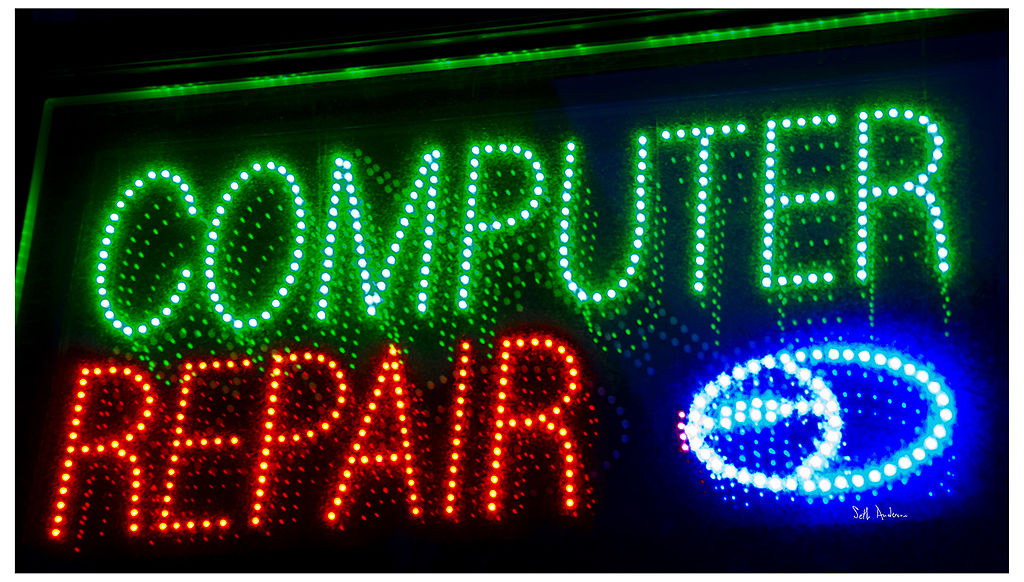Thu 28 January 2016 by Dražen Lučanin
Beyond Self-Hosted Apps
We have already talked quite a bit about the importance of self-hosting your apps due to the limitations of centralized cloud services and mentioned a number of great apps ready for self-hosting. In this blog post, we assume that you already self-host your apps to protect your data autonomy. From here, we look at what happens after you set up an app on your hardware, and how you maintain it: a job that is typically done in organisations by professional system administrators, aka sysadmins.
 (photo by Seth Anderson)
(photo by Seth Anderson)
Human Sysadmins Do not Scale
In this decentralized dream, we quickly see that having a human sysadmin for every personal data center is a luxury, either in terms of money needed to hire one or of personal time needed to stay informed and on top of all the current security threats. Security vulnerabilities are found almost daily! A few recent popular ones include: Heartbleed, Shellshock, Logjam and FREAK... (there's gotta be a song hiding in there with all these nice exploit names 😀).
It's true that knocking down doors the way the NSA can do with Facebook's or Google's to get direct data access does not scale for a decentralized cloud. Finding and exploiting security vulnerabilities scales very well, though. With tools like Metasploit, you do not need much more than a "script kiddie" to build a botnet. From the always popular old routers and Wordpress sites, to the more fashionable IoT botnets built from refrigerators and botnets spanning the whole internet, the dangers are evident and an insecure decentralized cloud is very exploitable.
What if the current package — where people start out with a Linux SD card image for a Raspberry Pi and are on their own from there — on is too low-level?
Open Source Platform Commons
We believe that the right level of abstraction for decentralizing the web is not by providing only operating system images, but by providing a platform. In such a platform, after installing that first self-hosted app, the user can still easily get automatic updates for security patches. It would include the collective wisdom of the crowd, made transparent through an open source project, the open source platform commons.
1. Auto-Updates
Heroku did a great thing for application development, allowing developers to set up their clients with apps that are deployed to a platform where Heroku's sysadmins handle the operations, freeing the app owners of needing dedicated engineers to handle day-to-day operations. We need something like this for self-hosting apps too.
We recently announced this on Twitter:
How to Protect Yourself from NSA Attacks on the recently discovered Diffie-Hellman vulnerability - https://t.co/pcNccSr97r /HT @EFF
— cloudfleet.io (@cloudfleetio) October 17, 2015Of course, at the time this came out, we had already hardened our nginx configuration. All of the CloudFleet Blimps got this patch through the nightly auto-updates we provide as part of the CloudFleet Services.
2. Openness and Trust
The other key component is that we need to know that we can trust this group of people that is pushing updates to us. For example, we love using Signal for messaging internally and as Mark nicely put it:
I trust Signal only because of one man - Moxie Marlinspike.
Signal is built as an open source project by people who transparently discuss its development in the open and are serious about security. This immediately gives it more credibility than closed source apps like WhatsApp that claim to have e2e encryption, or even than some semi-open apps like Telegram, which were recently criticized by multiple sides.
We are striving to develop CloudFleet in an open and trustworthy manner as well, with all of the source code and protocols published as open source. We are ready to discuss all aspects of our project on our public (self-hosted) forum.
As we are striving to decentralize the Internet through self-hosting using projects like the Raspberry Pi, we are asking more and more people to keep track of everything that is going on in the security sphere, which is simply not possible without investing a lot of time. The end goal where individuals have their own hardware device for storing their data will invariably mean the end of the sysadmin and necessitate open source platform commons. Take a look at this CloudFleet technical overview to see how we are building one in the open and consider backing our crowdfunding campaign.